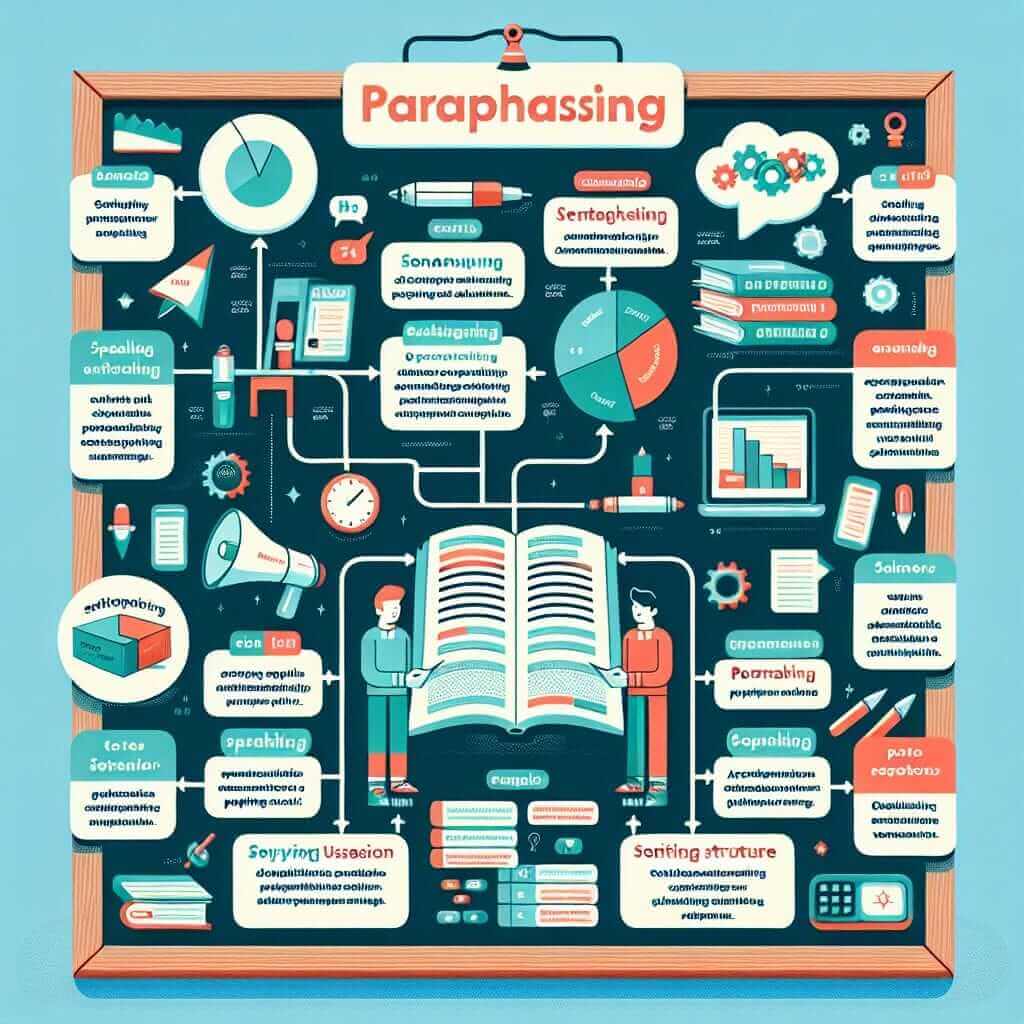As an IELTS instructor with over 20 years of experience, I’ve witnessed firsthand the transformative power of paraphrasing for students aiming to achieve their desired band score. Paraphrasing, in essence, is demonstrating your ability to express ideas using different words and grammatical structures while retaining the original meaning. It’s a skill highly valued in the IELTS exam, particularly in the Speaking and Writing sections, as it showcases your vocabulary range, grammatical flexibility, and overall language proficiency.
Why is Paraphrasing Crucial for IELTS?
The ability to paraphrase effectively is not just about showcasing a diverse vocabulary; it plays a critical role in various aspects of the IELTS exam:
- Enhanced Fluency and Coherence: Paraphrasing allows you to avoid repetition, especially in spoken English, contributing to a more natural and fluent flow of ideas.
- Vocabulary Range Demonstration: Utilizing synonyms and alternative expressions effectively demonstrates to the examiner your breadth of vocabulary knowledge.
- Grammatical Accuracy and Flexibility: Successful paraphrasing often involves manipulating sentence structures, showcasing your command over complex grammar.
- Avoiding Plagiarism: In the Writing test, paraphrasing is essential for summarizing and referencing source material without plagiarizing.
Effective Paraphrasing Techniques for IELTS
Now, let’s delve into practical techniques to hone your paraphrasing skills:
1. Utilize Synonyms
One of the most straightforward ways to paraphrase is by substituting words with their synonyms. For instance, instead of saying “important,” consider using “crucial,” “significant,” or “vital.”
Example:
- Original: Regular exercise is important for maintaining good health.
- Paraphrased: Engaging in physical activity on a regular basis is crucial for preserving good health.
2. Change the Word Form
Experiment with different parts of speech to rephrase sentences. Transform verbs into nouns, nouns into adjectives, and vice versa.
Example:
- Original: The government decided to implement new environmental regulations.
- Paraphrased: The government’s decision was to put into effect new environmental regulations.
3. Restructure Sentences
Instead of simply replacing words, change the entire sentence structure. Consider using active and passive voice interchangeably, or transforming simple sentences into complex ones.
Example:
- Original: Despite the heavy rain, the football match continued.
- Paraphrased: The football match went on, even though there was heavy rain.
4. Utilize Different Grammatical Structures
Explore various grammatical structures to rephrase your sentences. For example:
- Conditional Clauses: Instead of saying “Because he studied hard, he passed the exam,” try “If he hadn’t studied hard, he wouldn’t have passed the exam.”
- Relative Clauses: Instead of saying “The woman who lives next door is a doctor,” try “The woman living next door is a doctor.”
5. Practice with IELTS Past Papers
The key to mastering paraphrasing is consistent practice. Utilize past IELTS exam papers and sample answers to identify how effectively writers and speakers have paraphrased ideas. Try paraphrasing sentences and paragraphs from these materials to refine your skills.

Paraphrasing in Action: IELTS Examples
Let’s examine how paraphrasing works in the context of IELTS questions:
IELTS Speaking Part 1:
Examiner: Tell me about your hobbies.
Candidate (Without paraphrasing): My hobby is reading books. I like reading different kinds of books, like novels and history books.
Candidate (With paraphrasing): Well, I’m an avid reader. I find myself drawn to various genres, particularly fiction and historical accounts.
IELTS Writing Task 2:
Topic: Some people believe that the government should spend money on public transportation, while others think that it should be invested in other areas. Discuss both views and give your opinion.
Paraphrased Introduction: The allocation of government funds is a subject of ongoing debate, with some advocating for increased investment in public transportation, while others propose prioritizing alternative sectors.
Essential Tips for Effective Paraphrasing
- Focus on Meaning: Prioritize conveying the intended meaning accurately, rather than simply substituting words randomly.
- Read Widely: Expanding your vocabulary is essential for effective paraphrasing. Engage with diverse reading materials to enhance your lexical resource.
- Practice Makes Perfect: Dedicate time to regular paraphrasing practice. Use online tools, work with sample IELTS questions, and seek feedback from your tutor or language partner.
Conclusion
Paraphrasing is a skill that can significantly impact your IELTS score. By incorporating synonyms, altering word forms, restructuring sentences, and utilizing a variety of grammatical structures, you can demonstrate your language proficiency and achieve your desired band score. Remember, consistent practice and a focus on conveying meaning accurately are key to mastering this valuable skill.